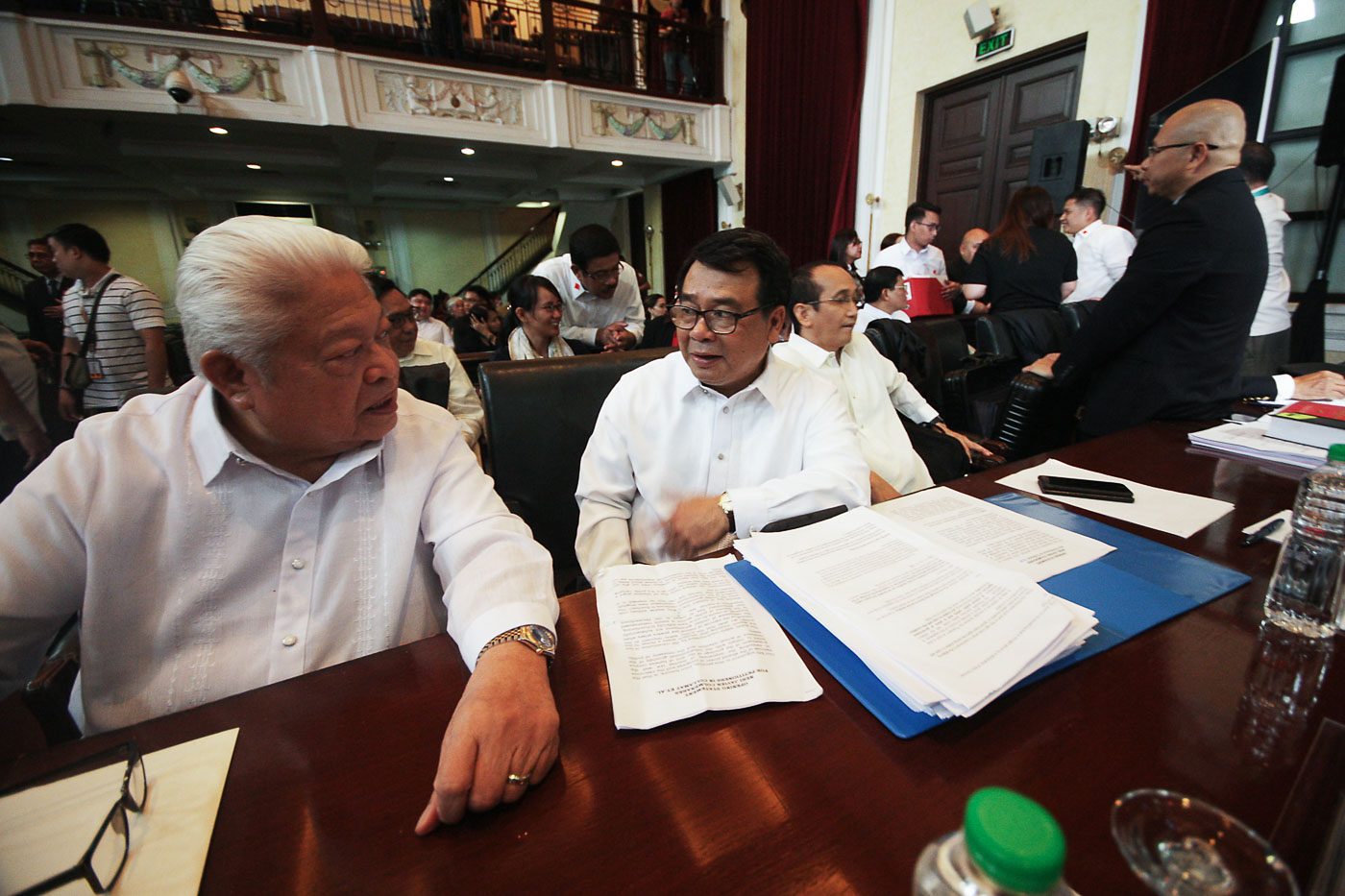SUMMARY
This is AI generated summarization, which may have errors. For context, always refer to the full article.

MANILA, Philippines – Supreme Court Associate Justice Marvic Leonen on Tuesday, January 16, questioned why the military didn’t give Congress sufficient intelligence information to guide them in approving the second extension of martial law in Mindanao.
Leonen raised the question when the Supreme Court (SC) heard oral arguments anew on the 4 consolidated petitions seeking to stop martial law in Mindanao, which has been re-extended to the end of 2018.
“In the entirety of the deliberations of martial law, Congress did not have the opportunity to look at the context of the intelligence information given to you,” Leonen said, interpellating one of the petitioners, Albay Representative Edcel Lagman.
Leonen pointed out that Congress was made to rely only on the letters of President Rodrigo Duterte, the Secretary of National Defense, and the military chief.
Lagman said there was a briefing but that it was not enough. The congressman said that their interpellations of the resource persons also did not tackle much because each representative was given only 3 minutes each.
“We could not exhaust all possible questions we had to ask,” Lagman said.
Leonen was the lone dissenter in the SC ruling in July 2017 that upheld the martial law proclamation. In his dissenting opinion, Leonen stressed that Congress has a “considerably broader review power.”
So the justice asked: did Congress use that power, or did it just rely on President Duterte’s recommendation?
Insufficient info?
For example, Leonen pointed out that in his letter to Congress, Duterte cited Esmail Sheikh Abdulmalik, aka “Commander Turaifie,” who leads a faction of the Bangsamoro Islamic Freedom Fighters (BIFF).
“I suppose you know he’s history,” Leonen said, to which Lagman said he was unaware.
Based on Rappler interviews with military sources, Turaifie is a low-level operative.
“I am not diminishing the evilness that Turaifie may be able to commit, but what I’m asking is: are you saying, Congress was not introduced to the history of this person in Mindanao, in relation to the BIFF, in relation to foreigners coming in, training this guy?”
“No, your honor,” Lagman said, answering negatively to Leonen’s successive questions on whether lawmakers were briefed on other information about security threats in Mindanao.
Lagman said they were briefed on “a litany” of skirmishes between the armed groups and the military.
But Leonen said: “So you were not told that in these skirmishes, in fact, in almost all, the army prevailed.”
Leonen also led Lagman to say that the lawmakers were never given specifics on the operational details of martial law.
“In other words, Congress gave a blank check?” Leonen asked.
“Because it appeared that from the very start, it was a conclusion that the request of the President would be approved by Congress. Congress became a rubber stamp of the President,” Lagman said.
The oral arguments were still ongoing as of posting time. – Rappler.com
Add a comment
How does this make you feel?
There are no comments yet. Add your comment to start the conversation.